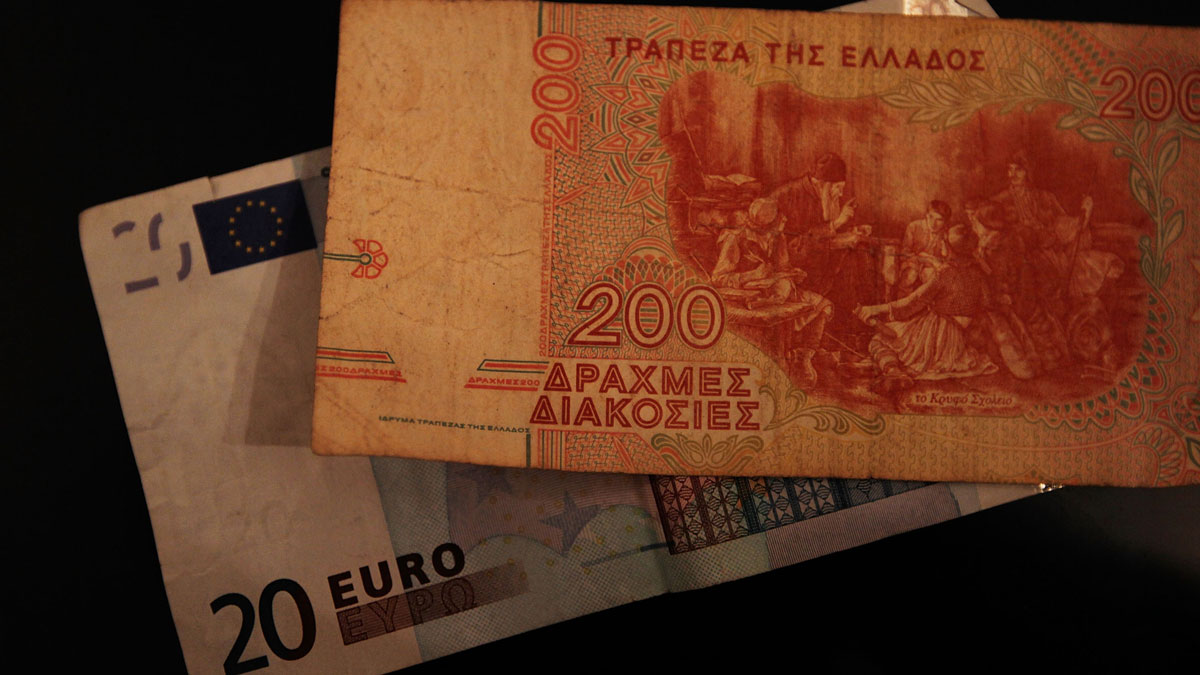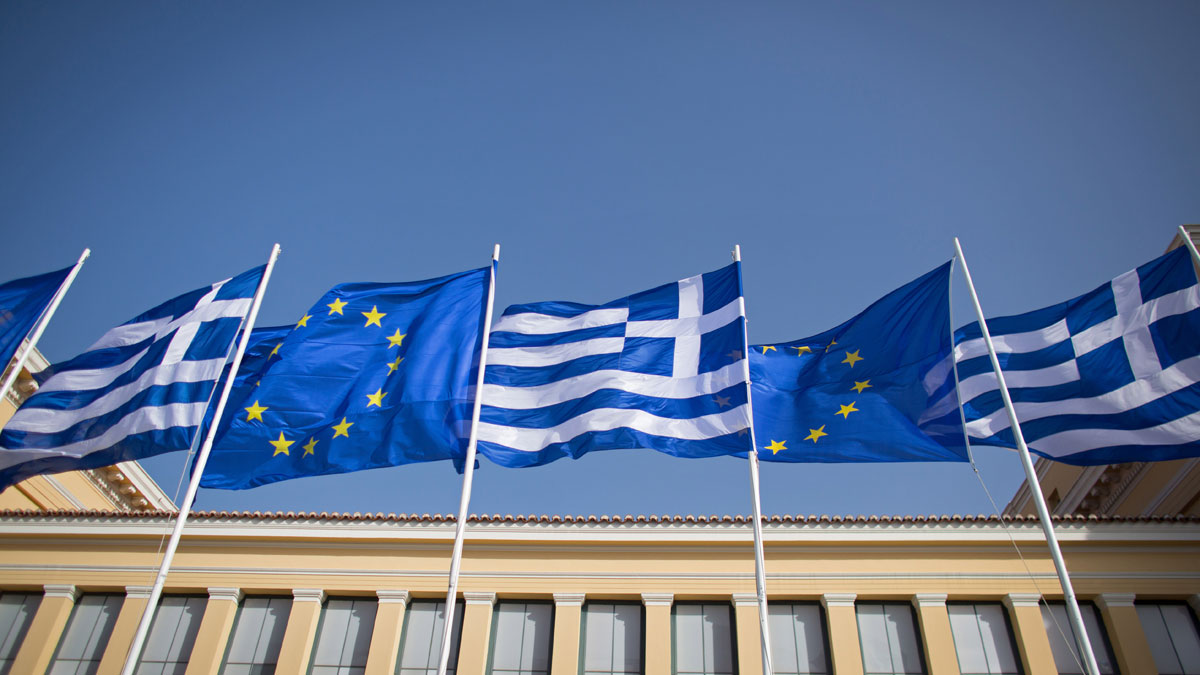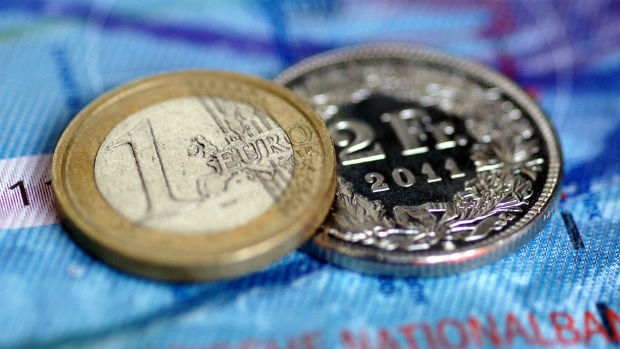Greek crisis: a case of history repeating itself
If Greece leaves the euro, it won't be the first monetary exit for the Hellenic Republic

A free daily email with the biggest news stories of the day – and the best features from TheWeek.com
You are now subscribed
Your newsletter sign-up was successful
Greece's current crisis may look like a one-off – but there's a cyclical element to its wild swings between optimism and despair.
Yesterday was no different. Just hours before the bailout deal expired and Greece went into arrears, news came through that Athens has proposed a new two-year bailout to break the impasse. That could yet provide the basis for an agreement to prevent a 'no' vote precipitating a so-called Grexit.
Even if Greece does end up leaving the euro, its fate would not be unprecedented. Several times before, Greece has faced the dire economic consequences many are threatening if the country fails to reach an agreement with its creditors over the next few days.
The Week
Escape your echo chamber. Get the facts behind the news, plus analysis from multiple perspectives.

Sign up for The Week's Free Newsletters
From our morning news briefing to a weekly Good News Newsletter, get the best of The Week delivered directly to your inbox.
From our morning news briefing to a weekly Good News Newsletter, get the best of The Week delivered directly to your inbox.
Currency collapse
Greece was part of an earlier currency partnership, the Latin Monetary Union, from 1868 to 1908. It was also kicked out of that club, The Independent reports, after it failed to adhere to fiscal rules designed to ensure currencies were "freely interchangeable" and to "foster monetary stability". Sound familiar?
The precedents do not end there. As with the euro Greece was a late joiner to a group which was initially launched by France in 1866 and which included at the outset Belgium, Italy and Switzerland. The union later expanded and also comprised Romania, Bulgaria, Venezuela, Serbia and San Marino.
Greece was admitted back into the union in 1910, but the whole house of cards collapsed in 1914 with the outbreak of World War One. There have been plenty of comment articles in recent days predicting a similar fate for the euro, or at least giving this as a stated preference for what Financial Times columnist Gideon Rachman brands a "failed economic experiment".
A free daily email with the biggest news stories of the day – and the best features from TheWeek.com
Inflation
What about if Greece left and was faced with a rapid currency devaluation and rampant inflation, as predicted by Bloomberg among others?
Again, Greece has form. In fact, it suffered what CNBC claims is the fifth worst case of hyperinflation ever following its occupation by Germany during the Second World War, with rates in 1943 and 1944 of 13,800 per cent.
Similarities are again apparent, although the current economic malaise is not at all on the same scale. The crisis was caused by an ineffectual tax collection by a puppet administration, which meant the country's budget deficit soared to 94 per cent and eventually peaked at over 99 per cent. Productivity plummeted and the economy shrank from 67bn drachma in 1939 to around 20bn between 1942 and 1944.
In fact, after the currency was rebased following the end of the occupation in November 1944, Greece was again blighted by hyperinflation and rebased again when it joined the under the Bretton Woods fixed currency system – yes, another monetary union – until it was abolished in 1973.
-
 Why is the Trump administration talking about ‘Western civilization’?
Why is the Trump administration talking about ‘Western civilization’?Talking Points Rubio says Europe, US bonded by religion and ancestry
-
 Quentin Deranque: a student’s death energizes the French far right
Quentin Deranque: a student’s death energizes the French far rightIN THE SPOTLIGHT Reactions to the violent killing of an ultraconservative activist offer a glimpse at the culture wars roiling France ahead of next year’s elections
-
 Secured vs. unsecured loans: how do they differ and which is better?
Secured vs. unsecured loans: how do they differ and which is better?the explainer They are distinguished by the level of risk and the inclusion of collateral
-
 Majority of Greeks regret joining euro
Majority of Greeks regret joining euroSpeed Read Fifty-three per cent say it was 'wrong' to join single currency - and feeling is strongest among the young
-
 US stock markets fall after Greek vote
US stock markets fall after Greek voteSpeed Read Wall Street slide mirrors falls in Asia and Europe as global 'Grexit' jitters take hold
-
 'Leap' second: how much was it worth?
'Leap' second: how much was it worth?In Depth During yesterday's extra second, Apple earned about twice the average UK weekly salary
-
 Greece crisis: has bailout ended threat of Grexit?
Greece crisis: has bailout ended threat of Grexit?In Depth Economic targets remain ambitious and the political situation is far from settled
-
 Greece finally reaches deal to release €12bn bailout funds
Greece finally reaches deal to release €12bn bailout fundsIn Depth ECB stress tests show country's banks needs €14bn to fill a capital shortfall
-
 Swiss franc soars after chaotic end to euro cap
Swiss franc soars after chaotic end to euro capIn Depth Why market turmoil followed decision to lift system pegging value of Swiss franc to the euro
-
 What currency should an independent Scotland adopt?
What currency should an independent Scotland adopt?In Depth If Scotland does vote for independence it must decide the future of its currency
-
 'Bleak milestone' as eurozone unemployment hits 12%
'Bleak milestone' as eurozone unemployment hits 12%In Depth Euro falls as predictions of recovery confounded by record joblessness in first two months of year